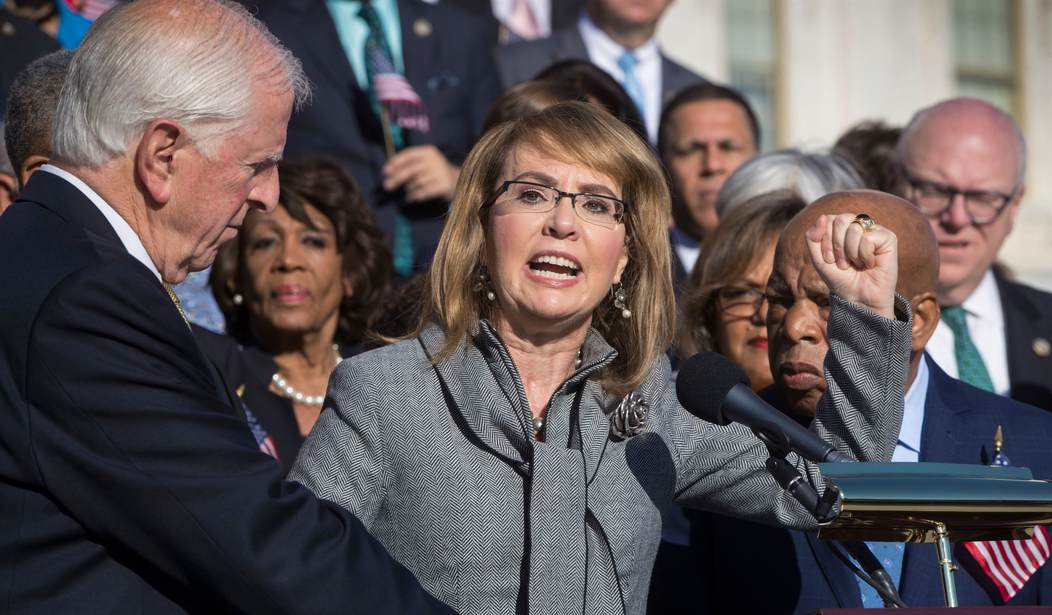Since the February shooting at a high school in Parkland, Florida, gun control advocates have been crowing about all the new gun control laws that they are getting passed. This past week, Gabby Giffords’ gun control organization, the Giffords Law Center, touted the passage this year of 55 new gun-control laws in 26 states, the most in any recent year on record. And Illinois Republican Governor Bruce Rauner signed two new gun control bills into law at the end of last week.
Everyone wants to do something to stop mass public shootings. Unfortunately, these laws will not make Americans safer and surely won’t prevent mass public shootings such as the one in Parkland.
We have to be careful that gun control laws not disarm law-abiding citizens instead of criminals. To the extent that this happens, gun control laws will increase crime. So there needs to be reasonable evidence that the regulations actually reduce crime. Let’s take a look at the proposals that are getting the most traction right now.
1) “Universal background checks.” One survey shows that 22% of guns obtained in the US in the last two years were acquired without a background check. But this is mainly a result of inheritances and, to a lesser extent, gifts. There is no evidence that guns acquired through inheritance are commonly used in crime. The survey claims that 16% of the time, guns are obtained when people purchase guns at stores without undergoing background checks. But this is illegal everywhere in the US, and is not a credible claim.
Universal background checks would impose checks on private transfers of guns. But research by economists and criminologists consistently shows that this wouldn’t reduce any type of crime rate. The research shows the same thing for background checks in general.
Recommended
Some surveys show 90% public support for universal background checks. But when these laws were put on the ballots in Nevada and Maine in 2016, they had a hard time breaking 50%, despite Michael Bloomberg massively outspending his opponents by 3-to-1 or 6-to-1 margins.
One problem is the incredibly high error rate in the background check system. Instead of stopping actual felons, it almost always mistakenly stops people who have similar names to felons.
Another problem is the cost of these checks, which can add anything from $55 to the price of a gun in Oregon to $125 in DC to up to $200 in New York City. This can prevent poor people from getting the guns that they need to defend themselves and their families.
If background checks reduce crime, then everyone benefits and the costs should be covered by taxpayers. But Democrats will fight tooth and nail against that, because they want gun buyers to bear the burden. In 2013, all but two Democrats in the Colorado House of Representatives voted against a Republican amendment to exempt impoverished individuals from a new tax on private transfers of guns.
2) “Red flag laws.” This law would allow people’s guns to be taken away without even a hearing before a judge, which is something that most states currently require. When people really pose a clear danger to themselves or others, they should be confined to a mental health facility. But denying them the right to legally buy a gun won't accomplish anything. People can get guns in other ways, and just about as easily as they can buy illegal drugs. And if someone is really a danger, why only take away his guns? Why not also take away other things that can be used as weapons, such as cars? Giving the government this kind of power will erode personal freedoms and may not save any lives at all.
3) Take guns out of the hands of accused domestic abusers. People convicted of either misdemeanor or felony domestic violence already lose the right to own a gun for the rest of their lives. But people make false accusations all the time, and a man may well become enraged by the confiscation of his firearms. Such a law may lead to explosive situations. Obviously, taking away a man’s gun doesn't prevent him from engaging in abuse.
4) Safe storage gun laws. Nicolas Kristof at the New York Times recently pointed to evidence that most people don’t lock up their guns. He believes that requiring individuals to lock up their guns will reduce accidental child gun deaths and teenage suicides.
The CDC claims that from 2006 to 2015, an average of 59 children under the age of 15 died annually from accidental gunshots. According to my research, published in the Journal of Law and Economics and elsewhere, accidental gun deaths and suicides among these young people didn’t change when gunlock laws were enacted.
Gunlock laws in certain states have made it more difficult for people to defend their families. This will embolden criminals to attack more people in their homes; there were 300 more total murders and 4,000 more rapes annually in states with these laws. Burglaries also rose dramatically.
Gun control advocates are used to getting their way without having to address the arguments made against their proposals. That doesn’t create a productive dialogue, and it doesn’t help us figure out what laws will actually save the most lives.
* John Lott is the president of the Crime Prevention Research Center and the author more recently of “The War on Guns.”
























Join the conversation as a VIP Member